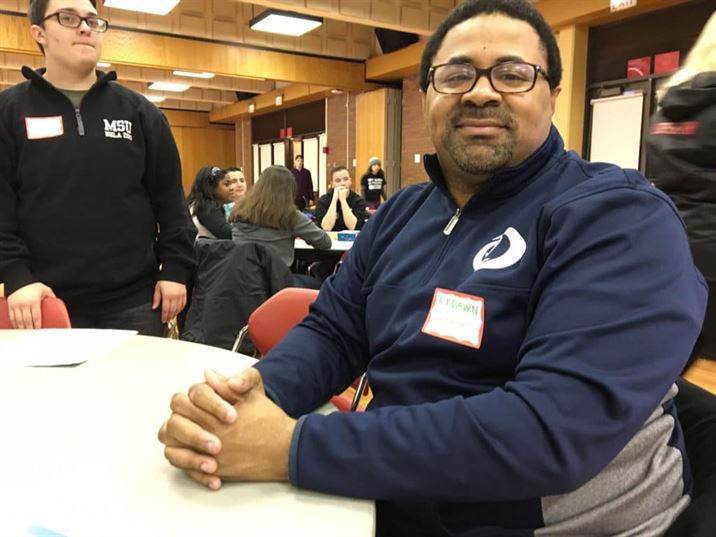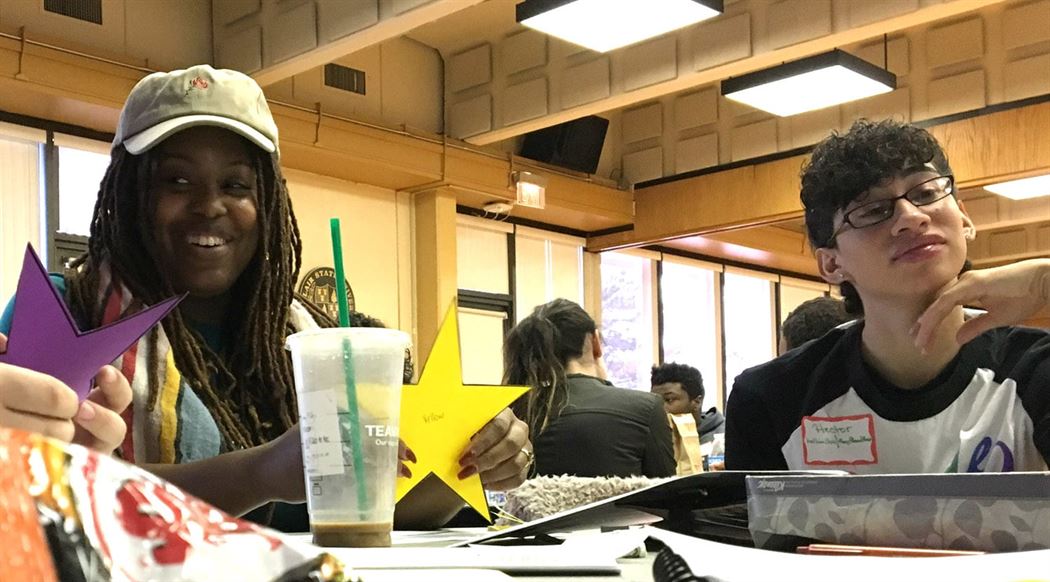Students came together in the Student Center Ballrooms on Saturday, March 18, where Montclair State held its third safe space training session of the spring 2017 semester from 1 to 5:30 p.m.
Safe space training is a four-and-a-half-hour program intended to educate students and create a network of support for the LGBTQ community at Montclair State through four key methods: reflection, personal and professional development, education and action.
When entering the program not knowing what to expect, graduate student Ledawn Hall, majoring in educational leadership with a concentration in higher education, said he was looking forward to seeing the diversity of students within the program, regardless if they were a part of the LGBTQ community or not.
Ledawn mentioned that this program was “highly recommended” to him by one of his graduate assistants within his diversity training course. It prompted him to take what he called a “great training and educational opportunity.”
Participants were immersed in several activities that involved engaging with each other in groups or one-on-one, visual representations of statistics within the LGBTQ community, and interactive PowerPoint slides presented by the directors of the program Justin Lemley and Evan Weisberg.
In addition, each trainee was provided with a glossary of terms used within the LGBTQ community, along with activity sheets as a fun way to learn about their own specific identities. When released from the program, the group was given rainbow-colored buttons that say “Safe Space Trained” with a URL to the LGBTQ center website below it.
Shante Johnson, a graduate student participating in the Newark-Montclair dual education program, said she enjoyed the experience safe space training gave to her.

Students sit in the Student Center ballrooms, waiting for the program to start.
Photo Credit: Heather Berzak
“Getting to hear other people’s experiences during the activities was really powerful to me,” said Johnson. “I would definitely recommend this program to other people.”
Austin Greitz, lavender leader and peer educator of the safe space training program, said he believes that safe space training is essential because it can potentially save lives within the LGBTQ community.
“Ultimately the goal is to educate people so we can prevent those tragedies from happening,” said Greitz.
While this particular group was smaller than usual, Greitz said he still appreciated the dynamic of the entire room and believed that “reaching 70 to 80 people on campus is still going to make a difference in broadening support of the lesbian, gay, bisexual and transgender community regardless.”
The program gives an overview of hate crimes that LGBTQ people face, puts into perspective these students that often feel uncomfortable in school, and shares statistics of high rates of suicide that the community faces in society today.
For those interested in participating in a safe space training session, the next available sessions will take place in the fall 2017 semester and can be registered for on HawkSync.



